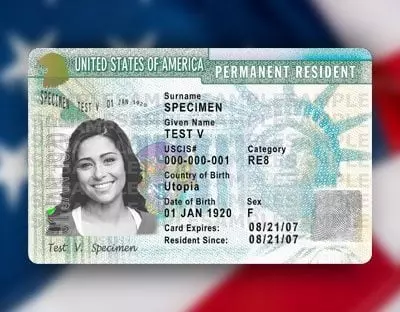
Are Indian Green Card holders hit by Trump’s new scrutiny rules?
Trump orders a strict Green Card review for 19 high-risk nations. Find out why Indians are not affected and what the new USCIS policy means for immigrants.

The Trump administration, following the incident of an Afghan national shooting at two National Guards personnel near the White House, has decided on Friday (November 28) to launch a “rigorous re-examination” of all Green Card holders in the US from “every country of concern”.
The announcement was made by the US Citizenship and Immigration Services (USCIS) Director Joseph Edlow in a post on X. “At the direction of @POTUS, I have directed a full scale, rigorous reexamination of every Green Card for every alien from every country of concern,” stated Edlow.
“The protection of this country and of the American people remains paramount, and the American people will not bear the cost of the prior administration’s reckless resettlement policies. American safety is non-negotiable,” he added.
Will it affect Indians?
So will it affect Indian Green Card holders in the US? The answer is no, as India does not feature in the list of 19 “high-risk countries” which comprise Afghanistan, Myanmar, Burundi, Chad, the Republic of the Congo, Cuba, Equatorial Guinea, Eritrea, Haiti, Iran, Laos, Libya, Sierra Leone, Somalia, Sudan, Togo, Turkmenistan, Venezuela and Yemen.
Also Read: Trump pauses all third-world migration, citing the DC trooper shooting
According to a PTI report, these are the same countries that US President Donald Trump announced a travel ban in June.
The Hindustan Times reported that the new policy regarding Green Card holders will enable USCIS officials to consider country-specific factors from 19 designated ‘high-risk countries’ during review of immigration requests.
What are Green Cards?
The USCIS, an agency within the Department of Homeland Security, announced that its updated policy guidance is now in force and will apply to all requests currently awaiting review as well as those submitted on or after November 27.
Also Read: Trump suspends Afghan immigration after National Guard shooting
The US government grants Green Cards, officially called Permanent Residence Cards, which confer lawful residency. This status enables individuals to live and work in the United States without time limits and offers an eventual route to citizenship, generally after three to five years. Holders also gain long-term security through recognition of their continuous presence within the country over many years ahead.
The backdrop
The development comes days after Afghan national Rahmanullah Lakanwal fired at two National Guards on Wednesday near the White House in Washington, DC. One of them, Sarah Beckstrom, 20, died from her injuries, while the other one, Andrew Wolfe, 24, remains in critical condition.
Also Read: US shooting: Two National Guard members shot in attack near White House
Lakanwal arrived in the United States in 2021 through a program created by Joe Biden’s administration that evacuated and resettled thousands of Afghans after the turbulent American exit from Afghanistan.
His asylum request reportedly later received approval after Donald Trump took office, completing his transition from evacuee to officially recognised applicant within the US immigration system at that particular time.

